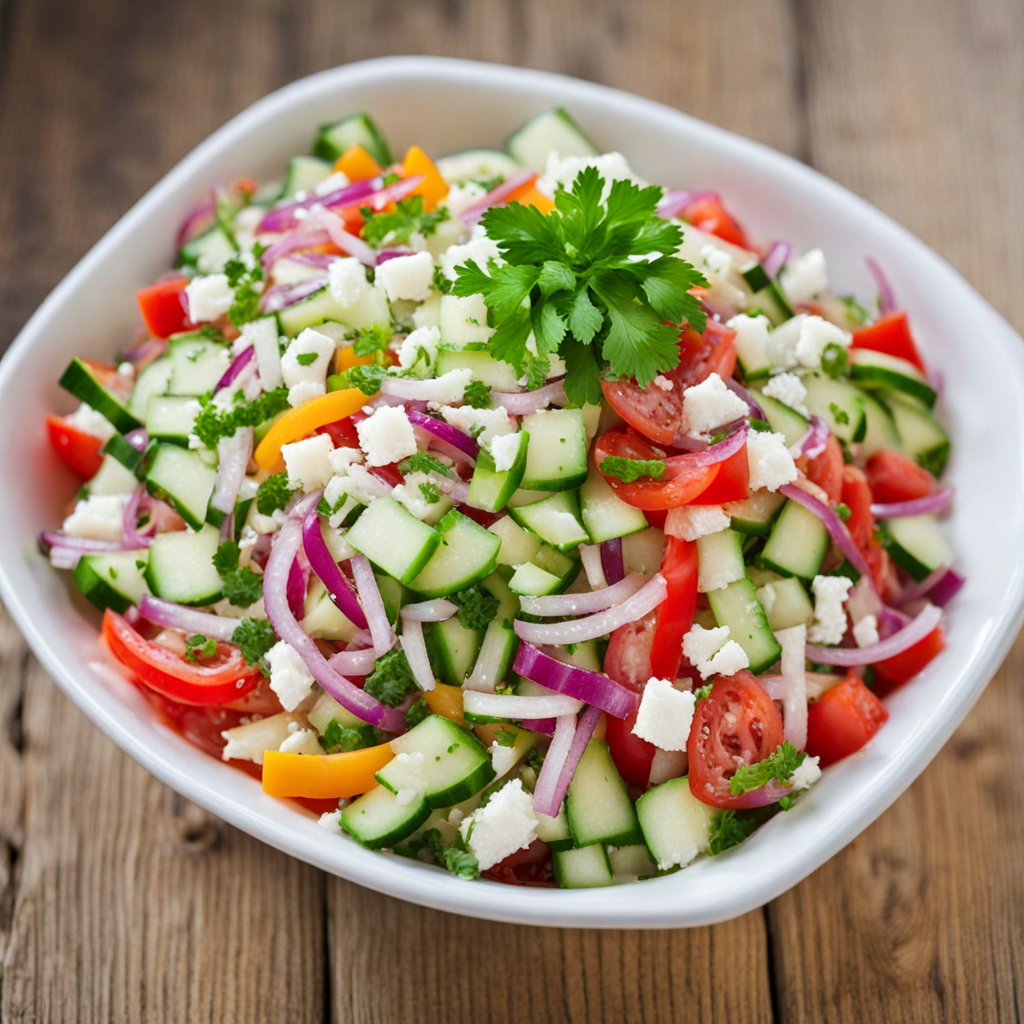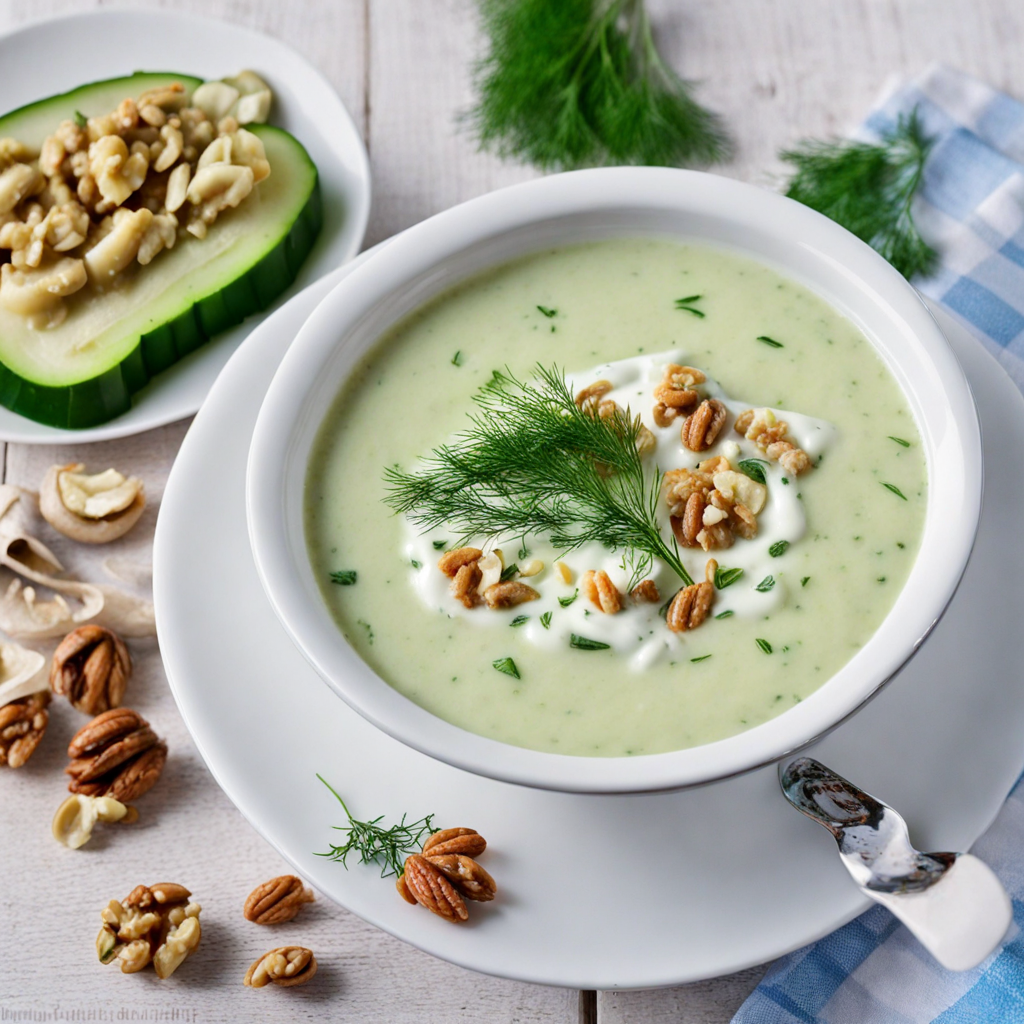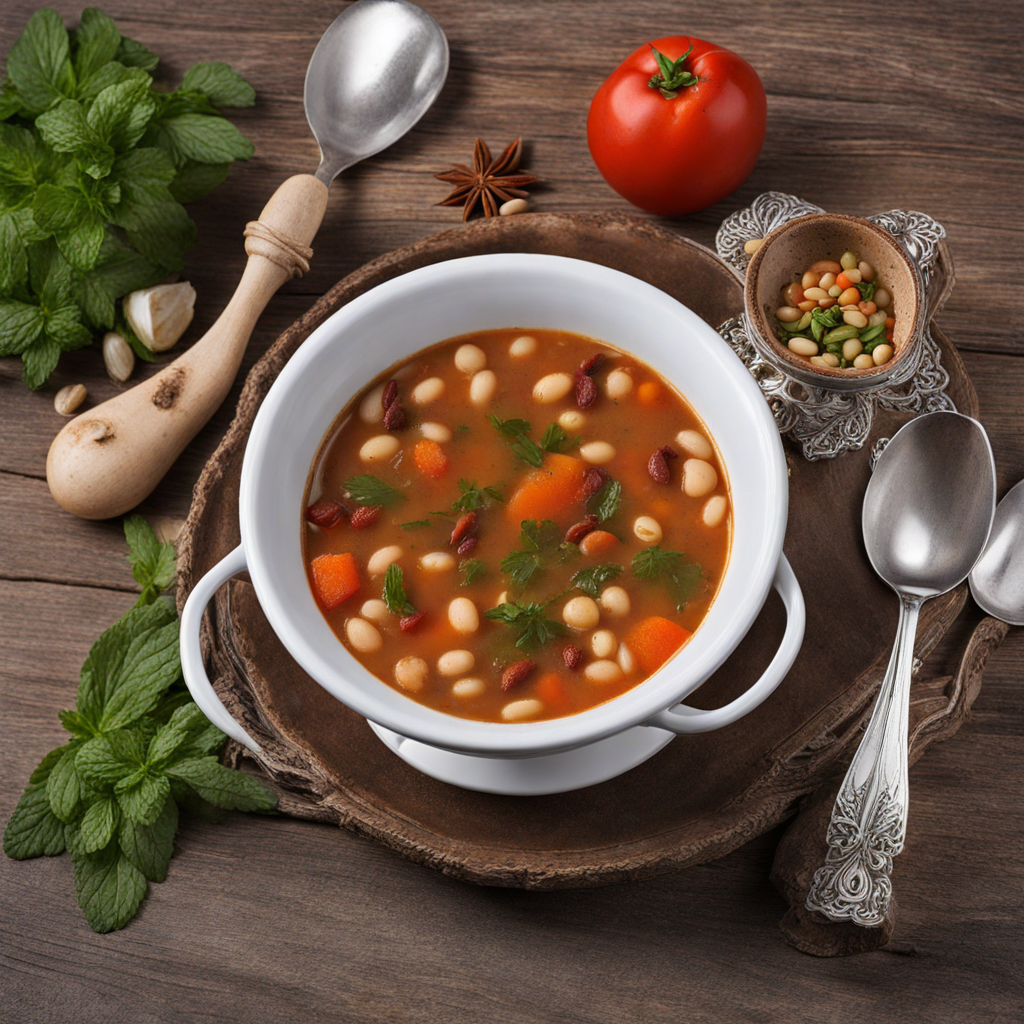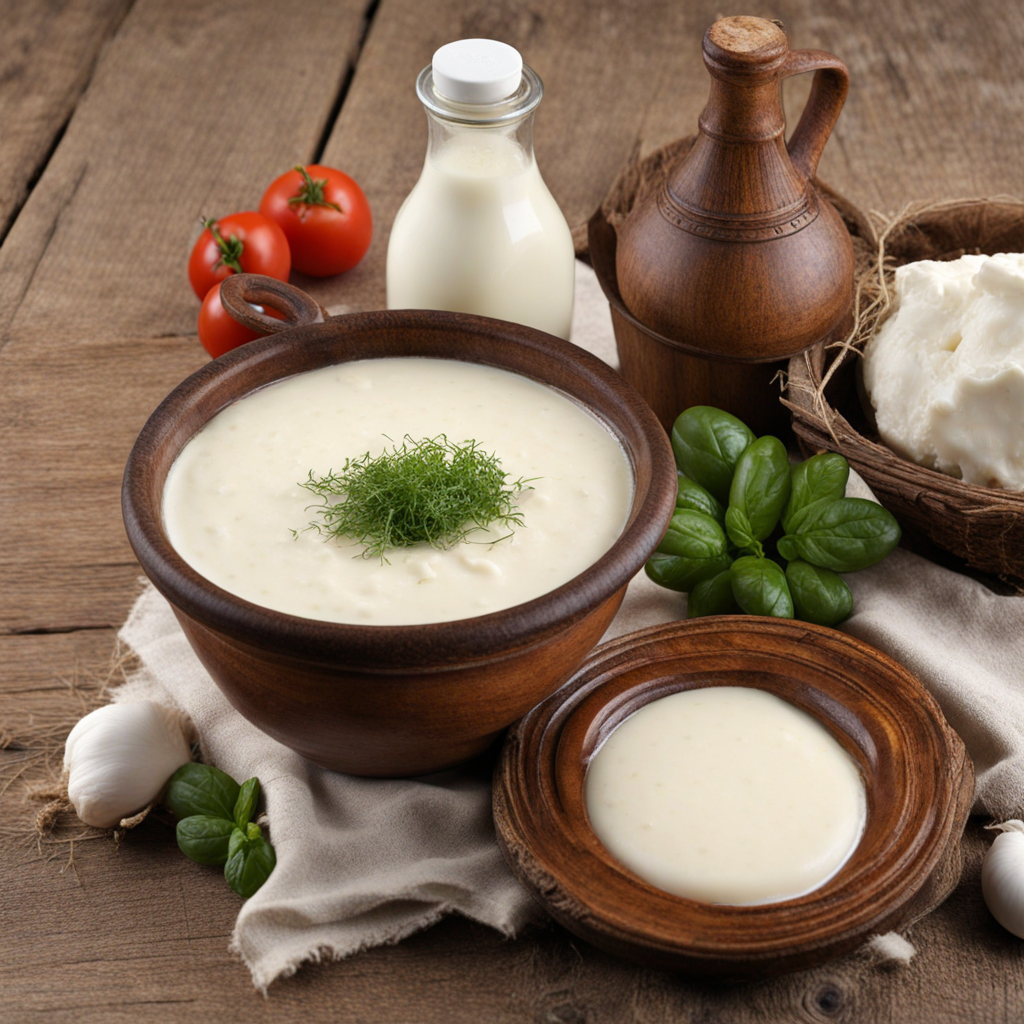Shopska Salad
Shopska Salad is a vibrant and refreshing dish hailing from Bulgaria, celebrated for its delightful combination of fresh ingredients and bold flavors. At its core, the salad features a medley of diced tomatoes, cucumbers, onions, and bell peppers, all of which contribute to its colorful presentation. The vegetables are typically chopped into bite-sized pieces, allowing each ingredient to shine while harmonizing beautifully with the others. The freshness of the vegetables is complemented by a drizzle of high-quality olive oil and a splash of vinegar, which bring a zesty brightness to the dish. One of the defining characteristics of Shopska Salad is the generous topping of crumbled white cheese, known as sirene, which adds a creamy, salty element that balances the crispness of the vegetables. Sirene is a traditional Bulgarian cheese made from sheep’s milk, and its tangy flavor elevates the salad to new heights. Often garnished with a sprinkle of fresh parsley or a few olives, the presentation is as appealing as the taste, making it a feast for both the eyes and the palate. Shopska Salad is not only a staple in Bulgarian cuisine but also a symbol of the country’s culinary heritage. It is commonly served as a starter or side dish, especially during the hot summer months when the crispness of the vegetables is particularly refreshing. The salad is a perfect accompaniment to grilled meats and is often enjoyed with a glass of local wine or rakia. For anyone looking to discover a new taste, Shopska Salad offers a delightful introduction to the flavors of Bulgaria, combining simplicity with a burst of freshness that is sure to please.
How It Became This Dish
The History of Шопска салата: A Taste of Bulgarian Heritage Introduction Шопска салата, or Shopska salad, is a vibrant and refreshing dish that has become a culinary icon of Bulgaria. With its vibrant colors and fresh flavors, this salad not only tantalizes the taste buds but also tells a story of the region’s history, culture, and agricultural practices. To fully appreciate Shopska salad, one must delve into its origins, cultural significance, and the evolution it has undergone over time. Origins and Ingredients Shopska salad originates from the region of Shopluk, which encompasses parts of modern-day Bulgaria, Serbia, and North Macedonia. The name "Shopska" references the local population known as "Shops," who have their distinct dialect and customs. The salad is believed to have emerged in the mid-20th century, although its roots may trace back to ancient practices of mixing fresh vegetables, a common tradition in Balkan cuisine. The principal ingredients of Shopska salad are fresh tomatoes, cucumbers, onions, peppers (often bell peppers), parsley, and a generous sprinkle of sirene, a type of brined white cheese similar to feta. The dressing is typically simple, consisting of sunflower oil, vinegar, and salt. The combination of these ingredients not only reflects the agricultural bounty of the region but also embodies the ethos of Bulgarian cuisine—simplicity, freshness, and a celebration of local produce. Cultural Significance Shopska salad is more than just a dish; it is a cultural symbol of Bulgaria. It is often served as a meze (a small dish served before the main meal) and is a staple in restaurants and homes throughout the country. The salad’s bright colors—green from the cucumbers, red from tomatoes, and white from the cheese—symbolize the colors of the Bulgarian national flag, further emphasizing its patriotic significance. The salad enjoys a place of honor in Bulgarian social gatherings and celebrations. It is commonly found at weddings, family reunions, and national holidays. The act of sharing Shopska salad represents hospitality and community, as it is often accompanied by traditional Bulgarian bread, rakia (a strong fruit brandy), and other local dishes. In a way, serving and enjoying Shopska salad has become a ritual that binds people together, fostering connections and evoking a sense of belonging. Development Over Time The evolution of Shopska salad can be viewed through the lens of Bulgaria’s historical and socio-political changes. After World War II, as Bulgaria underwent significant transformations under communist rule, traditional dishes began to gain renewed importance as symbols of national identity. Shopska salad emerged as a culinary ambassador of Bulgaria, celebrated not only within the country but also abroad, particularly in Eastern European communities. In the 1970s and 1980s, as tourism increased, Shopska salad became a popular offering in restaurants catering to international visitors. The dish’s appeal lay in its fresh ingredients and visual appeal, making it an attractive choice for those seeking an authentic taste of Bulgarian culture. The recipe began to travel, with variations appearing in neighboring countries, each adapting the salad to their local tastes and ingredients. Despite these variations, the core essence of Shopska salad remained intact. It symbolizes a connection to the earth, reflecting the seasonal availability of ingredients. The salad is typically enjoyed in the summer months when tomatoes and cucumbers are at their peak. This seasonal aspect of the cuisine highlights the importance of local agriculture and sustainable eating practices, a theme that resonates strongly in today’s culinary landscape. Modern Interpretations In contemporary Bulgarian cuisine, Shopska salad continues to thrive, but it is also subject to creative reinterpretations. Chefs and home cooks alike experiment with the traditional recipe, incorporating ingredients like olives, avocados, or even grains such as quinoa to add new textures and flavors. These adaptations reflect a growing trend toward fusion cuisine, where traditional dishes are reinvented to suit modern palates and dietary preferences. Furthermore, Shopska salad has gained popularity beyond Bulgaria’s borders. It is frequently featured in Balkan-themed restaurants worldwide, celebrated for its health benefits and vibrant presentation. As a dish that is naturally vegetarian and can easily be made vegan by omitting the cheese, Shopska salad aligns with the global shift towards plant-based diets. Conclusion Shopska salad is more than just a refreshing summer dish; it is a cherished emblem of Bulgarian culture and heritage. Its origins in the Shopluk region, coupled with its vibrant colors and fresh ingredients, encapsulate the essence of Bulgarian cuisine. As it has evolved over time, Shopska salad has maintained its cultural significance while adapting to modern culinary trends. Today, as people increasingly seek authentic and wholesome food experiences, Shopska salad stands as a testament to Bulgaria’s rich agricultural traditions and communal values. Whether enjoyed in a bustling restaurant or at a family gathering, the salad remains a beloved dish that continues to foster connection, celebration, and a sense of identity among Bulgarians and those who appreciate the flavors of the Balkans.
You may like
Discover local flavors from Bulgaria







